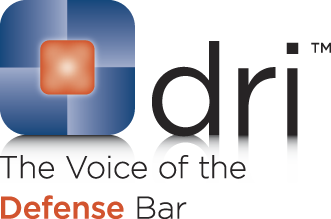The case of Hayashida v. Second Judicial District Court, 76 Nev. 433, 357 P.2d 117 (1960) is an interesting case regarding the issue of substitute service of process. Service of process is the first step needed to bring a target defendant under the authority or (or as we attorneys like to call it, “jurisdiction”) of the court. Without proper service of process, the court has no power to make a decision that will legally bind the parties.
In order to accomplish this first step of service of process, Plaintiffs’ attorneys will universally look for the easiest way to drag their target defendants under the jurisdiction of the court. As you can imagine, tracking down an out-of-state over-the-road truck driver to hand him a copy of the summons and complaint can be all but impossible. A second alternative to personal service is publication of the summons and complaint in the newspaper. Plaintiff’s’ attorneys don’t like this option because it requires permission from the court and thus takes time and money.
Because of these problems, Plaintiffs’ attorneys will often use the simpler substitute service option described in NRS 14.070. In particular Section 1 of the statute says that when an out-of-state driver uses Nevada’s public roads, streets or highways, the Plaintiffs’ attorney can serve the Department of Motor Vehicle and by doing so can get jurisdiction over that driver and the driver’s employer. Plaintiffs’ attorneys love this statute because it makes their job of service of process so much easier than tracking that driver / employer and delivering the summons and complaint in person.
In the Hayashida case the driver’s employer argued that there should be no jurisdiction over him because he was served using NRS 14.070. The complaint alleged that Plaintiff got hurt while Hayashida’s truck was being unloaded. The unique fact about this case is that the truck was being unloaded at a job site one-half mile off of the closest public road. The owner argued that the plaintiff could not serve him through the DMV because the unloading of the truck so far off the public road did not constitute “the use and operation of a motor vehicle over the public roads, streets or highways” thereby making the statute inapplicable to him.
In the Hayashida decision, the Nevada Supreme Court agreed with the truck’s owner. It said:
We are unable to see how there could be any possible connection in the unloading of the truck in this case with the use of the highway. We conclude therefore that the unloading of a vehicle which is entirely off the public roads, streets and highways is not part of its use and operation upon such public passageways within the meaning of NRS 14.070.
The court concluded that because the owner was not properly served with process that the court could not proceed with the suit until personal service or a different form of substitute service, such as publication, could be had.
For more specifics on DMV service, click HERE. If you have questions about whether a suit has been properly served, please contact Mills & Associates to discuss the particulars.
 Follow
Follow Email
Email


